It’s been a challenging time for the gaming industry to navigate over the past year, with around 10,000 global job cuts, studios downsizing and much anticipated projects being axed.
But last week we revealed what appears to be a slightly more positive story for the Liverpool City Region, with the games industry contributing £220m of GVA each year.
The cluster is ‘well established’ with 95% of businesses having traded for at least five years, according to preliminary findings from the Growth Platform report, conducted on behalf of LCR Games Board.
With around 1,800 people employed across 50 games industry companies in the Liverpool City Region, average wages are ‘15% higher’ than other industries in Liverpool and productivity levels are ‘twice’ the city region’s average, the report has discovered.
But what else sets Liverpool City Region apart from other major UK gaming hubs and why are games companies across the region now shunning competition to collaborate?
“There’s definitely something a bit spiritual about Liverpool as the home of creativity”
Named the European Capital of Culture back in 2008, creativity still continues to ooze through the city from the cobbled corners of the Georgian Quarter through to the buzz of the Cavern Quarter.
The Batman, Fantastic Beasts and Where to Find Them, The Crown – and of course, Eurovision – are just a handful of the global film and TV shows that have opted to shoot across the region.
It’s a similar picture with music, with Liverpool home to the likes of The Lightning Seeds, The Zutons and not forgetting The Beatles, who first took the plunge into stardom after performing at Liverpool’s iconic Cavern Club 63 years ago.

“There is definitely something a bit spiritual about Liverpool as a home for creativity,” Jamie Brayshaw, head of marketing at Ripstone Games, tells Prolific North.
“If you go back to the days of Merseybeat it was innovative, collaborative and cool for music. We’ve seen that since with film and television. We’ve also seen it over the past 30 years for games as well.”
Liverpool’s creative and artistic heritage is “significant” for the games sector, agrees Louise Andrew, head of art at co-development studio d3t.
“I don’t think gaming areas such as Leamington Spa or Surrey are necessarily renowned for having a history of creativity. Liverpool has great music, drama and TV programmes based here. We want to celebrate that and work together. Thanks to this history of creativity, game creators have settled into this environment too.”
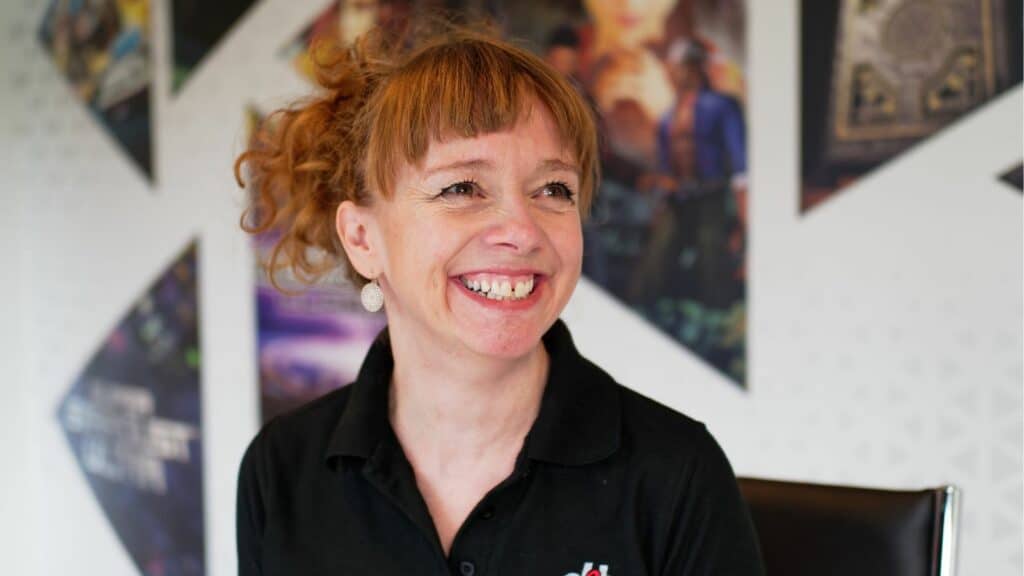
The region’s revered musical roots has played a major role in attracting and retaining talent in the region, especially in the early days of the gaming ecosystem developing around Psygnosis, a former Sony-owned video game developer and publisher.
“I was like the old man at Psygnosis but they were all ravers who loved the music scene and Cream nightclub was a big deal to them,” reflects Leo Cubbin, co-founder of Ripstone Games.
“That’s why all Leftfield and similar music was brought into the Wipeout game,” adds fellow co-founder, Phil Gaskell.
Although Ripstone has since recently relocated to bigger offices in Liverpool’s Knowledge Quarter, Gaskell has plenty of anecdotes on the synergy between games and music from when the team first moved into its former HQ in the Baltic Triangle over 10 years ago.
“When we were setting the furniture up, Echo & the Bunnymen were practising in the room next door,” he recalls.
It wasn’t a strange occurrence to see the likes of Miles Kane hanging out with The Zutons in one of the studios or bumping into Ian Broudie from The Lightning Seeds for a chinwag over coffee mugs in the canteen.
It all “felt very creative” with video game creators rubbing shoulders with musicians. But it’s not just the region’s creative spirit that’s proved attractive to those working in the games industry.
The region is “desirable” as a location for games companies and staff thanks to its more “affordable cost of living”, says Craig Pearn, director of talent acquisition at Wushu Studios.
In comparison with other gaming hubs across the UK, Liverpool has a “big city attitude without the expense”, adds Nick Davies, co-founder of Lucid Games.
And for Alison Lacy, location manager at Avalanche Studios Group, Liverpool’s network of science, tech and universities makes it an ideal place to attract talent.

“It’s got that balance. We can hire junior people who can afford to live and work here, have a good social life and benefit from everything the city has to offer.
“The other special thing about Liverpool is we want this place to do really well. We want everybody to do well as businesses and we want all sorts of great music and TV.”
Collaboration: “I wish we could do more”
The wider games sector is notorious for being shrouded in secrecy thanks, in part, to the shackles of NDAs up until a title is released or the fear of staff being poached from rivals.
“There was a fear of industry secrets leaking out and people didn’t want everyone to know what they were working on. It was just a normal thing, just accepted,” says Nick Davies, co-founder of Lucid Games.
Now, major gaming companies in the region appear to be unfurling that cloak of mystery in a shift away from being a sector that was once “very secretive” to one that’s more collaborative.
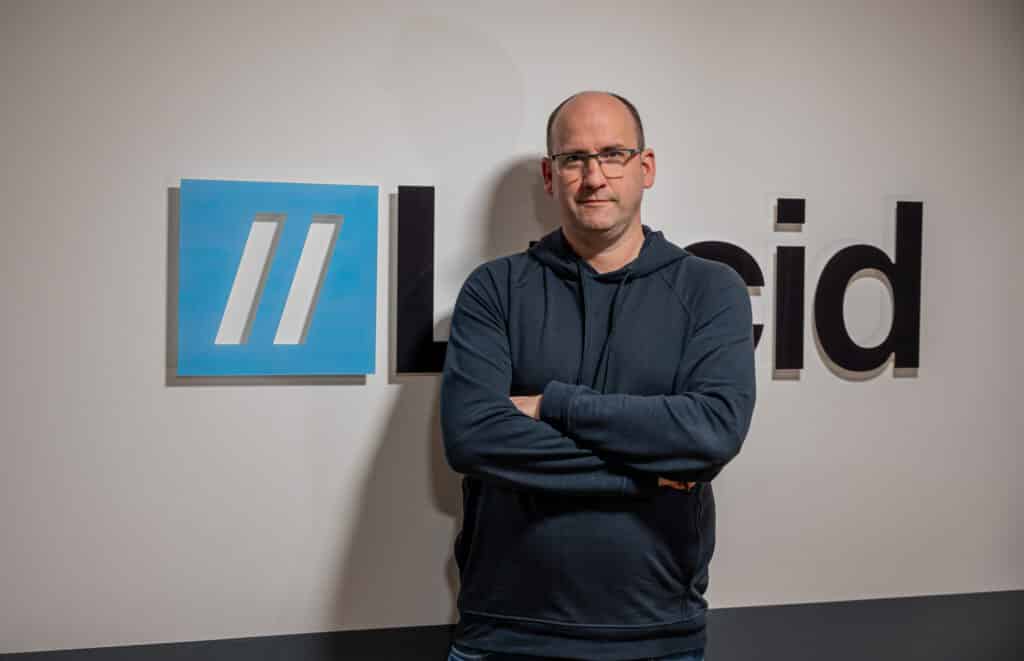
“For years, I didn’t meet anyone from another games studio here. Now, we realise whilst there is some competition with talent, and the public that will buy our games to some degree, that’s overshadowed by what we can achieve by working together,” says Davies.
“When we work together, whether that’s bringing talent through or best practices, it will make all of us better at what we do and make us all more successful.”
There’s “no undercurrent”, says d3t’s head of engineering, Phil Owen, as games companies are now coming together to celebrate regional successes, whether it’s for the opening of a new studio or launch of a new initiative.
“Our industry is actually relatively young, or you could say immature. Things have moved on since that sense of competitiveness in the past and we have started to diversify a little bit,” explains Alison Lacy, Location manager at Avalanche Studios Group and co-chair of LCR Games Board.
“That diversification has changed the atmosphere a little bit. Being part of the LCR games board, I sit in meetings alongside people from Tencent, PlayStation, Ripstone or Firesprite and we don’t feel like competitors because there’s so many great games to be made.”
Despite the positivity, there’s still a healthy dose of realism about the state of the industry.
“It’s weirdly NDA heavy for some reason. We’re getting past that to some degree but we’ve generally realised the benefits of being more closely linked and doing more together. It far outweighs any competition we have between each other. It has been very refreshing,” explains Nick Davies from Lucid Games.
But is Liverpool’s games hub really that collaborative? You won’t get quite the same gushing response from Ripstone’s Phil Gaskell.
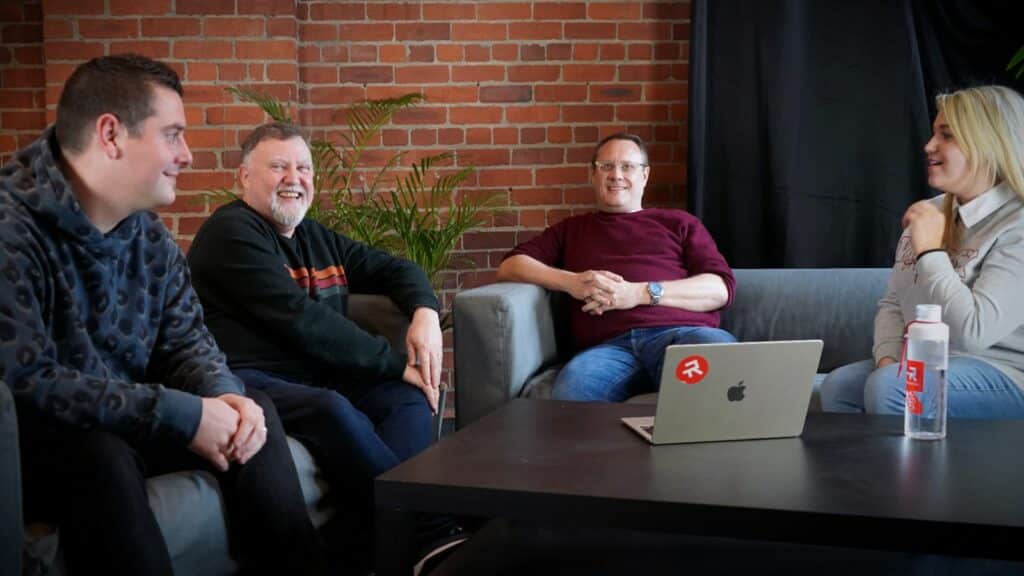
“I wish we did more, I think we could do more,” he says. “I think we could find ways of meeting each other that’s not halfway round the world in LA, San Francisco or Cologne, because that’s where we tend to meet.”
“I’d like to find ways where we can be more collaborative because I think we are much stronger together if we pool our talents.”
Although some studios have teamed up on projects, he believes other hubs seem to have nailed collaboration “better” than Liverpool has.
“There is a business element where you’re chasing the same dollar, the same work and people don’t want to share too much. We’ve always been quite collaborative, right from the word go, but not everybody else is in return,” adds Ripstone’s Leo Cubbin.
The talent dilemma: There’s a “huge gap”
But there is now one major factor driving collaboration between games companies in the Liverpool City Region: the industry’s talent dilemma.
“Where we are competitors is for talent and I think we’ve realised we won’t solve that by remaining competitive and not talking to each other,” says Alison Lacy from Avalanche Studios Group.
“From having a great talent pipeline to senior leaders, we only solve that by coming together. Everybody, at least in Liverpool that I’ve spoken to, totally gets that.”
Last year, a coalition of the city region’s games studios, educators and industry organisations finally came together to launch Gamechangers. It’s an initiative designed to discuss skill gaps, diversity, learning and development opportunities, plus funding and partnerships across the region.
They identified a “huge gap” between how rapid the games industry is moving in comparison with how “understandably slow” educational institutions are at setting adequate curriculums for students.
“By joining up, we said we could be smarter and achieve more and be a little bit more efficient,” explains Ripstone’s Jamie Brayshaw, who is also co-chair of the LCR Games Board.
Gamechangers soon discovered that there’s a “difficult divide” thanks to how young the games industry is, with a lack of onboarding or upskilling processes for new and emerging talent, and the quality of students emerging from education who “weren’t quite making the grade”.
Where Liverpool City Region is “weak” is at a university level, says Craig Pearn from Wushu Studios.

“There’s a new university course in Liverpool and it’s so far behind the rest of the more established universities. It’s a bit more challenging because it doesn’t have enough good students coming through and the problem that they have is there aren’t enough jobs.
“Some students aren’t doing some of the things I would expect them to be doing,” he says. “We’ve hired some brilliant people into Wushu at an entry level point but none of them have come from Liverpool, unfortunately.”
For Phil Owen, head of engineering at d3t, a major “struggle” from an engineering point of view is a lack of courses teaching the C ++ language. “From the conversations I’ve had with universities it’s that they’d love to teach it, but they have no one to teach it as it’s difficult and those that know it, already work in the sector.”
“The games industry needs to set up a body to assess all these courses”
Louise Andrew, head of art at d3t and ambassador for Women in Games across the North West, agrees especially when it comes to design: “There are way too many games art courses that are subpar. There is no governing body to oversee whether it’s a good course.
“I watch some of the teaching and think: ‘What a terrible course.’ Students are not going to come out knowing what they’re talking about. That’s not fair on the students, and this is not specific to Liverpool.
“The games industry needs to set up a body to assess all these courses and consider which ones are actually great.”
Outreach with regional schools and universities remains a “challenge”, adds Andrew as there’s a “disconnect” when it comes to students studying art at A Level or university to showcase the career pathways they could have in the games industry.
“I would try to reach A Level students and tell them to move into digital art and think about games. Then, you’re hitting the ground running with all the art knowledge and you’re getting more women into the industry, as well, which would be great.”
Diversity continues to be an issue in the games industry. According to the most recent UK Games Industry Census, 67% of the gaming workforce are male and 66% of the workforce reported that they are White British.
The industry has “always wanted a diverse talent pool”, explains Helen Cross, Digital and Creative Sector Lead at Liverpool City Region Growth Company. “If they’re making games for everyone, everyone needs to be represented, especially females.”
“We have had to combat a stigma around the games industry over the past 20 years that it’s usually for men or people that play games. If we combat that stigma, we can attract more people to the industry,” adds Brayshaw.
To tackle this, it’s “vital” the sector continues with initiatives like Gamechangers to gain more “inroads with further education and secondary schools”, says Phil Owen. “But sometimes, it’s difficult to make those connections.”
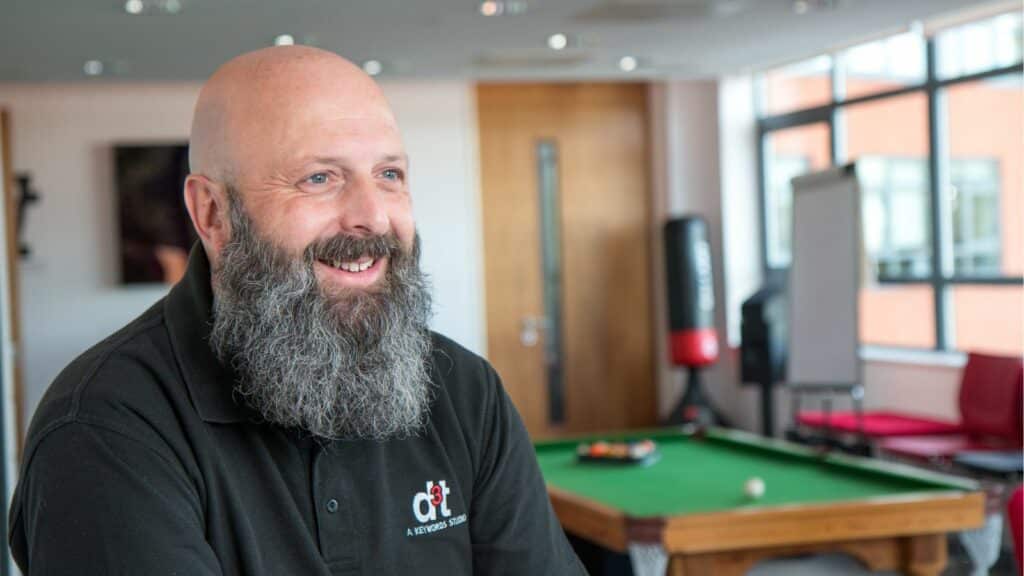
Some of the coding team over at Avalanche Studios Group have already started collaborating with the University of Liverpool Maths School to develop lesson curriculum plans around coding in a gaming environment.
“These are meaningful small things that we can do when we connect up,” says Alison Lacy. But the problem isn’t “necessarily” on students or universities as there’s still a reluctance from the games industry to put that right, says Brayshaw.
“I think that stems from the fact that games are always on deadlines. We don’t have the formula yet for how to nurture and develop new talent.
“Lots of the open positions of the games industry are aimed at established or senior game developers because it’s too much of a risk or burden to take on new talent.
“It’s absolutely vital we create strong pathways for talented people to look at games as a viable career and understand they are stable, professional jobs.”
University isn’t the only route into the games industry. Sharing his own experience, Brayshaw was headhunted as a teenager for his first industry job at EA after he set up his own tournaments, challenges and events online for the Need for Speed game.
“At the time, my ambition was to go to university, it is what my family had built me up to work towards. But I eventually became a community moderator for EA, then later forged a career at Sony and Ripstone.”
Over at The City of Liverpool College, there’s plenty of work happening behind the scenes to help equip students with the skills to enter the gaming sector whilst showcasing how transferable those skills are for other creative career pathways too.
Chris Butler, Digital Academy Project Manager at The City of Liverpool College, explains how he has been “striving” to forge collaborations with the gaming companies to provide opportunities for students and was recently named Innovator of the Year at the LCR Culture and Creativity Awards for his work.
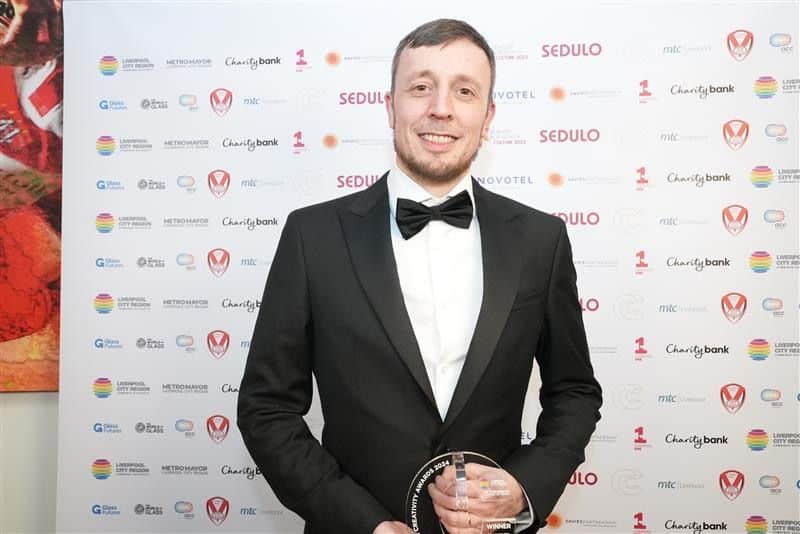
“What seems to shine through is that games studios not only work with a lot of the educational institutions here but they also work together collaboratively, which seems quite unique.
“We have really started to see, as a college, benefits to the students now coming out with experience on their CVs and that’s certainly helpful to them starting their careers and landing positions.”
One of those students is Felipe Lorenz, a 23-year-old student who has moved to Liverpool from Brazil to pursue his gaming ambitions and is on the cusp of completing his BA (Hons) degree in Games Design.
“Liverpool has become my home, a place where I have learned to adapt and thrive in an environment that once seemed daunting,” he says. “The college has been a huge part of my journey.”
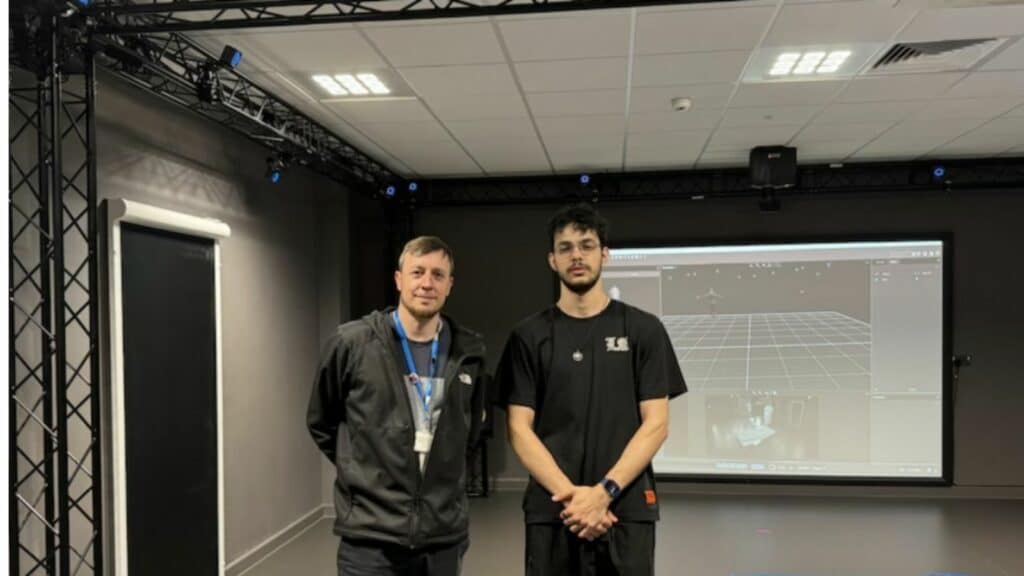
The City of Liverpool College also has a Digital Academy, equipped with a motion-capture studio. It’s helped pave the way for a virtualisation project for Clatterbridge Cancer Centre, led by college students like Felipe, which involved creating detailed animations and audio recordings to showcase each step of the journey a patient takes when visiting the radiography department to help reduce anxiety.
“The industry can be volatile at times but one thing I stress to my students, and it’s something we at college have been really pushing, is showing that those skills they have are transferable across many different industries.”
For Nick Davies at Lucid Games, the pool of talent from surrounding universities and the likes of The City of Liverpool College has helped Lucid “grow” as well as a “bigger catchment area” post Covid, thanks to remote working
“It’s been a little bit disjointed until Gamechangers. It’s no good us, as a studio, to go into education saying you should do more of this, it’s much more powerful when there’s 10 studios in Liverpool saying the same thing,
“One of the focuses this year is trying to get a bit more joined up thinking locally, so we’re speaking as a unit rather than one independent studio.”
“Hopefully, through Gamechangers, we’ll be able to change a lot of things in the next five years and make an impact,” adds Brayshaw, with the first Gamechangers report set to be released later this year.
If you didn’t catch the first piece in this series, where we explore the rich gaming heritage in the Liverpool City Region and some of the key players there today, make sure you give this a read here.
And the final piece of our three-part series looking into Liverpool’s games sector lands next week, where leaders address the critical regional challenges and changes needed to really level up this sector if it is to compete with other games clusters.









